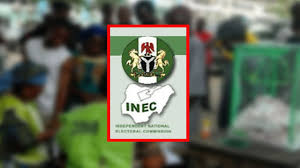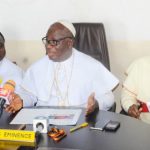The European Union Election Observation Mission, EU EOM, says the governorship and national assembly elections held on March 9 were marred by cases of violence that were targeted at election officials and voters.
Admitting that there were operational improvements in the elections, the mission said these were overshadowed by systemic failings, which included a lack of transparency, incumbency advantage and a troubling electoral security environment.
Maria Arena, the EU Chief Observer, stated this during the presentation of the mission’s preliminary statement in Abuja on Monday.
Arena also said the identified problems have made the need for an inclusive national discussion on electoral reform necessary.
The EU chief observer also disclosed that the mission deployed 73 observers to monitor voting, counting and the collation of results in 22 states, in all the geopolitical zones.
Ms Arena condemned the violence and intimidation against election officials and voters, and also referred to the obstruction of citizen observers by the military and security agents on Election Day – observers, including EU observers, were denied access to collation centres in Rivers.
“Overall, the elections were competitive with freedom to campaign. However, there was misuse of incumbency, including on state-owned state media, which prevented a level playing field. In the two weeks leading up to the state elections, EU observers saw some misuse of state offices, as well as institutional websites being used for campaigning by both APC and PDP incumbent governors.
“State-level media broadcast political debates in 21 states, giving voters the opportunity to directly compare candidates. However, in 12 states, incumbents or their main challengers refused to participate.
“All nine state-owned radio stations monitored by the EU Election Observation Mission served the interests of incumbent governors. The mission also noted pressure on local media outlets and journalists before and on Election Day.
“The systemic problems evident in the 2019 electoral process show the need for an inclusive national discussion on reform for greater electoral integrity and participation.
“We echo the view of leading civil society organisations that say that there is an urgent need to restore faith in the electoral process. We encourage a national conversation on electoral reform and strongly believe that it would meaningfully contribute to Nigeria’s democratic development,” she added.
On the collation process for the presidential election, the EU EOM concluded that inconsistent numbers, lack of clear checks and explanations, and insufficient public information undermined confidence in the integrity of the process.
The mission also emphasised the need for better training of collation staff, improved data management and, in particular, more information and explanation from INEC on such an important phase of the election process.
“As the 2019 elections in Nigeria have demonstrated, there are important improvements to be made. Elections can always be better. The systemic problems evident in the 2019 electoral process show the need for an inclusive national discussion on reform for greater electoral integrity and participation.”
You may be interested

Arsenal Equal Chelsea’s London Derby Feat After 5-1 Win Vs Palace
Webby - December 21, 2024Arsenal equaled Chelsea’s London derby achievement following their 5-1 win against Crystal Palace in Saturday’s Premier League game at Selhurst…

Haaland Backs Guardiola To Turn Man City’s Poor Form Around
Webby - December 21, 2024Erling Haaland had said he and his Manchester City teammates are still backing manager Pep Guardiola to turn the team’s…

PSG To Reignite Interest In Osimhen
Webby - December 21, 2024Paris Saint-Germain have contacted Napoli to discuss signing Victor Osimhen in January, according to reports in France.It is reported that…


















![American Pastor, David Wilson Seen Eating The Box Of Woman Who Isn’t His Wife [Video]](https://onlinenigeria.com/wp-content/uploads/2019/10/american-pastor-david-wilson-seen-eating-the-box-of-woman-who-isnt-his-wife-video-150x150.jpg)








